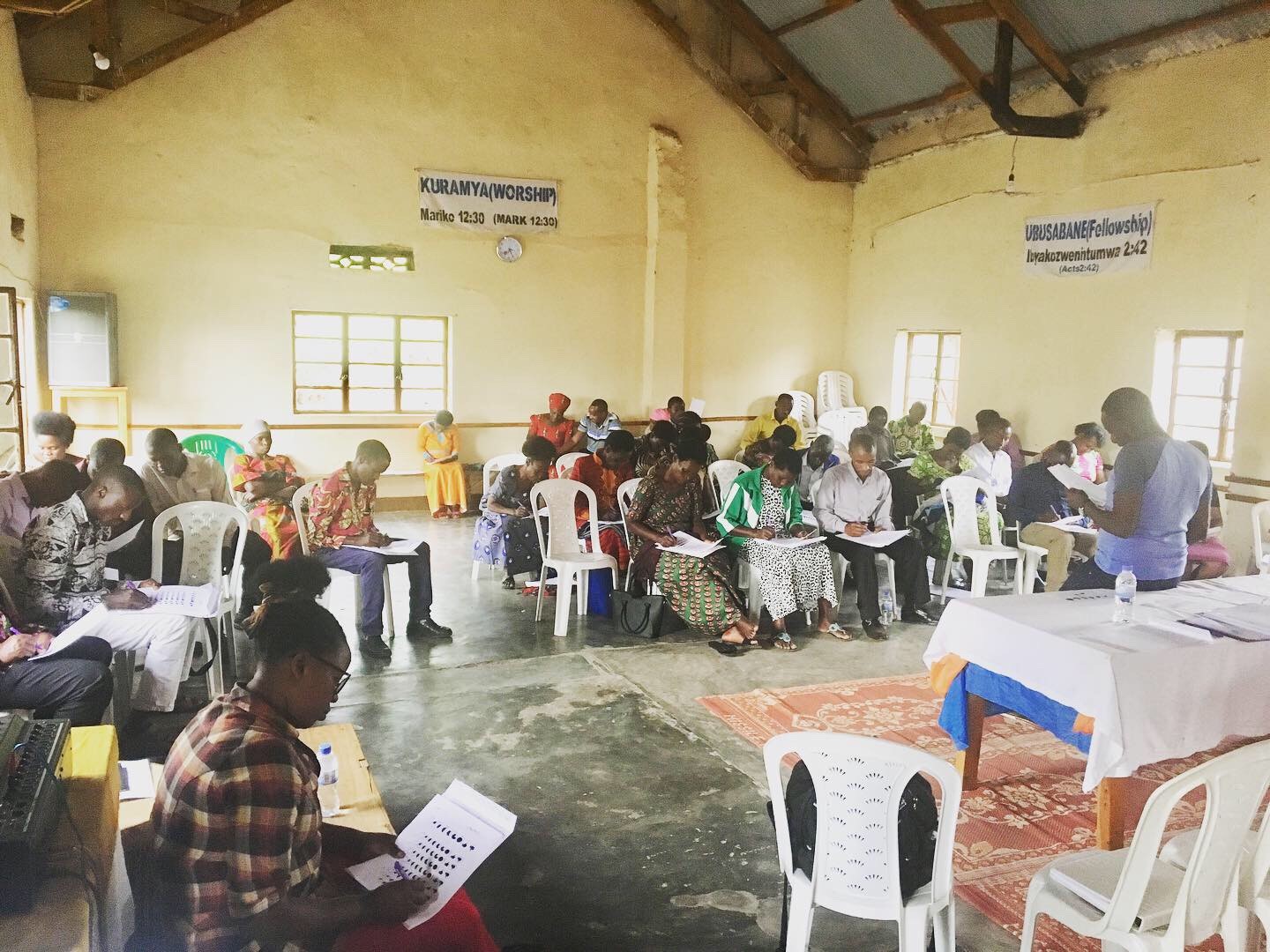By: Dr. Jana Hunsley
Trust-Based Relational Intervention (TBRI) has spread all over the world in less than two decades from when it was first developed by Drs. Karyn Purvis and David Cross. Working at the KPICD, we have the tremendous privilege to hear and know the stories of the life-changing work that happens across the globe. And now, we want to start sharing these TBRI stories with you.
My work at the KPICD  began with a study in Rwanda so it only makes sense to begin there, in the tiny country in Africa that is making a massive impact.
began with a study in Rwanda so it only makes sense to begin there, in the tiny country in Africa that is making a massive impact.
One of the first things that you may think of when you hear “Rwanda” may be the 1994 genocide that wreaked havoc on this nation in just 100 days. But if that is all you know about Rwanda, you are missing the incredible repair this country undertook to learn, heal, and transform.
In 2003, the PEACE Plan was developed in Rwanda with the goal to mobilize local churches and ordinary people to make a difference where they live. In partnership with Saddleback Church, the PEACE Plan, overseen by Mary Kamanzi, began fighting poverty, disease, and illiteracy.
When considering the care of its children, Rwanda understood the long-term negative effects of institutional care on child development. To combat these negative effects, Rwanda developed a deinstitutionalization program to transition children living in institutional care to family-based care. They created a bold plan, called Tubarerere Mu Muryango! (translated to Let’s Raise Children in Families!), to close all orphanages so that children could receive optimal care only families can provide.
The PEACE Plan developed the Orphan Care Initiative, directed by Dr. Elizabeth Styffe, to assist in the 3 R’s for children: Reuniting families, Remaining in families of origin, and Regaining families. Their goal was to help kinship families reunite, keep families intact, and place children living in institutional care in families to be adopted. As part of their initiative, they used TBRI to equip caregivers and communities with the understanding of how to see and meet the needs of children.
Local Rwandan PEACE Plan churches in a portion of the country identified church volunteers, referred to as lay social workers, to support caregivers and families using TBRI. Using a train-the-trainer model, the lay social workers learned to apply the TBRI model of care within Rwanda communities and provide TBRI caregiver training and ongoing support to families involved in Tubarerere Mu Muryango!.
Lay social  workers were given three main tasks to support families using TBRI: conduct support groups, trainings, and home visits. Support groups included time for caregivers to connect to each other and receive reminders on TBRI strategies. Trainings were educational opportunities for caregivers to practice TBRI specific strategies and tools. Home visits were performed on an “as needed” basis with a minimum of one monthly home visit. During home visits, lay social workers would check-in on families and help them solve any current issues.
workers were given three main tasks to support families using TBRI: conduct support groups, trainings, and home visits. Support groups included time for caregivers to connect to each other and receive reminders on TBRI strategies. Trainings were educational opportunities for caregivers to practice TBRI specific strategies and tools. Home visits were performed on an “as needed” basis with a minimum of one monthly home visit. During home visits, lay social workers would check-in on families and help them solve any current issues.
In the area of the country where TBRI was being used, entire churches “adopted” orphanages, and families from these churches brought children into their care to provide them love, family, and belonging.
The caregivers and lay social workers involved in the initiative grabbed onto TBRI and developed entirely new ways of being consistent with all they knew to be true: all people are precious and valuable.
It soon became clear that TBRI did not just provide strategies to meet the needs of children involved in the initiative; TBRI transformed their communities.
“TBRI really showed us that it could help with our everyday lives with our children and just in our relationships in general.”
They recognized the need for children to truly belong to a family; in a country that has no word for “adoption,” they chose to have children “born from the heart.”
“TBRI helped us to be able to see the child as our own. Before the training we used to feel that we were raising a child from another place, a child from somewhere else. But then after the training we were able to see them as our own child and that it’s the child that belongs to us, to our family.”
They understood children’s need for voice, time, and attention; despite living in rural, remote areas where it is common to walk hours for water, food, and basic needs, they prioritized their children and spending time together as a family.
“I can see that the children need someone to really talk about what they are feeling inside and what they are holding inside. Because I believe that if they don’t talk about it, it’s going to be the foundation of other problems that they will not be able to talk to us about for us to help them.”
They knew the responsibility of caring for children who had experienced institutional care was too much for one person to bear; the entire community claimed responsibility and took ownership of the need to care for its children.
“When you adopt, this thing of taking in a child, adoption and what the country is trying to do is something we should all take ownership of.”
adopt, this thing of taking in a child, adoption and what the country is trying to do is something we should all take ownership of.”
They never considered TBRI only applied to children entering their families through institutional care; they inherently knew TBRI applied to all their relationships and used it to bring their communities together.
“It went beyond helping children and helping their parents but it also helped us as a church to live with our neighbors and know how to talk to them and give them advice. TBRI helped us to live well together with each other as neighbors.”
The caregivers and lay social workers involved in the Orphan Care Initiative successfully closed orphanages by deciding to become the families their communities’ children needed. Some of them walked hours to sit in support groups, learn TBRI, and encourage their community members. They chose to keep their children’s preciousness and need for connection at the center of their relationship despite inevitable challenges and obstacles. And, counter to the cultural narrative they had been told, they knew that children’s developmental needs could not be better met in orphanages. The felt safety and belonging of a family will always win.
To learn more about the deinstitutionalization program in Rwanda and the work of the lay social workers, you can read the author accepted manuscript of the below published article here.
Hunsley, J. L., Razuri, E. B., Ninziza Kamanzi, D., Sullivan, H., Call, C. D., Styffe, E., & Hategekimana, C. (2021). Experiences of lay social workers trained in a trauma-informed intervention in the deinstitutionalization of Rwanda. Journal of Children’s Services, Vol. ahead-of-print No. ahead-of-print. https://doi.org/10.1108/JCS-09-2020-0056
This author accepted manuscript is deposited under a Creative Commons Attribution Non-commercial 4.0 International (CC BY-NC) licence. This means that anyone may distribute, adapt, and build upon the work for non-commercial purposes, subject to full attribution. If you wish to use this manuscript for commercial purposes, please contact permissions@emerald.com.
 Dr. Jana Hunsley is a Associate Research Scientist at the Karyn Purvis Institute of Child Development (KPICD), and she has her PhD in experimental psychology from TCU. Prior to coming to the KPICD, she earned her Masters in Social Work from the University of Chicago. Over the years, she has worked in various settings with children and adolescents who have experienced trauma, including outpatient counseling, in-home counseling, residential treatment facilities, institutional care, school settings, the child welfare system, and juvenile detention centers.
Dr. Jana Hunsley is a Associate Research Scientist at the Karyn Purvis Institute of Child Development (KPICD), and she has her PhD in experimental psychology from TCU. Prior to coming to the KPICD, she earned her Masters in Social Work from the University of Chicago. Over the years, she has worked in various settings with children and adolescents who have experienced trauma, including outpatient counseling, in-home counseling, residential treatment facilities, institutional care, school settings, the child welfare system, and juvenile detention centers.
What an incredible story – a testament to the power of villages supporting families to raise children.